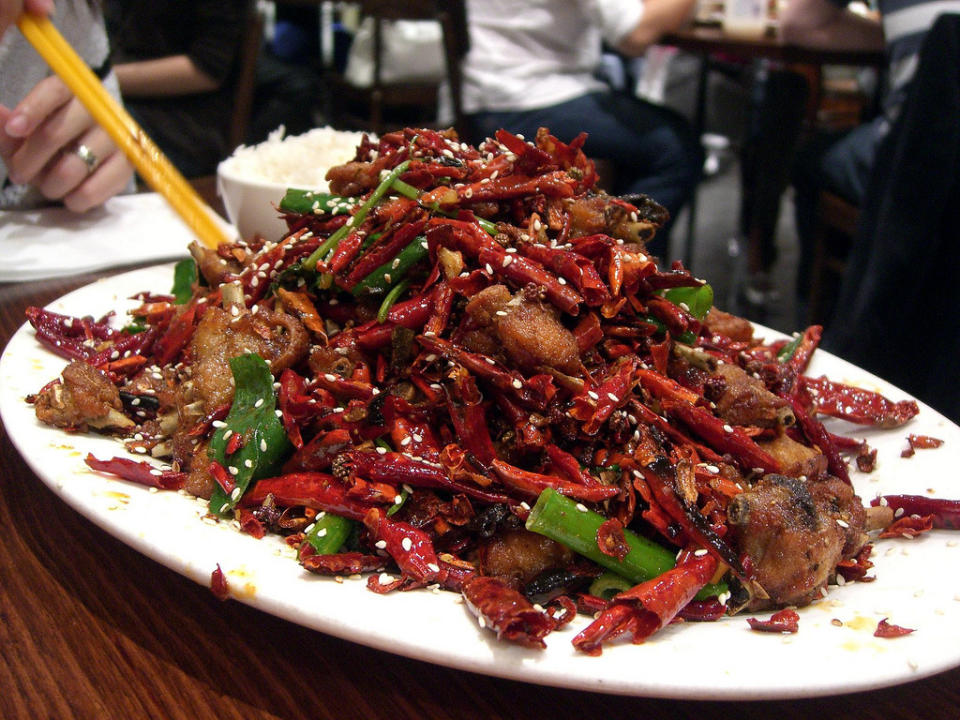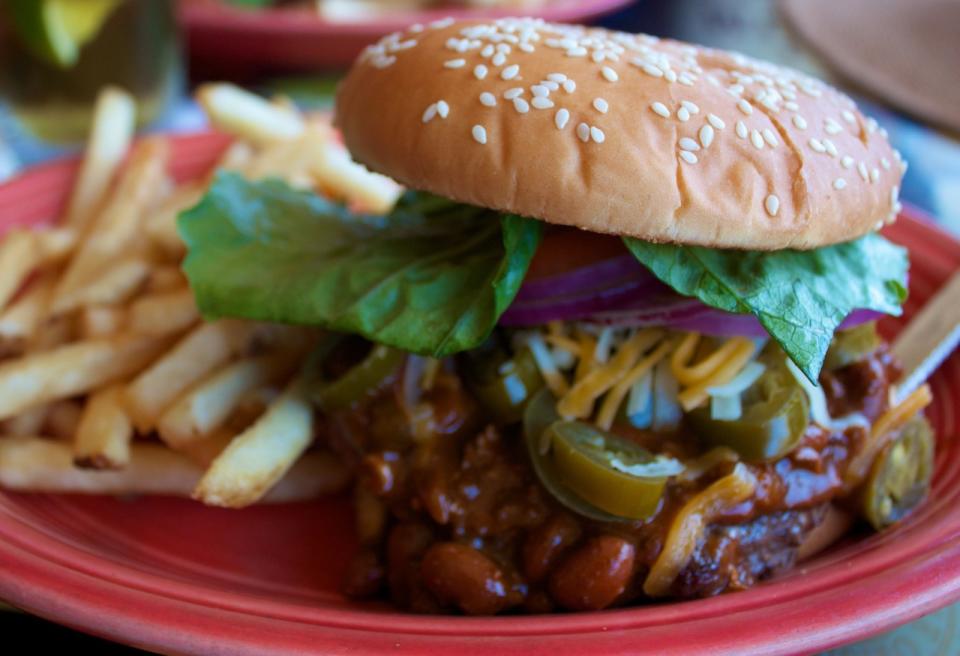9 Things About Spicy Food That Just Aren’t True
By: Michelle No

I like all my meals mixed with, baked in, and served alongside a spicy ingredient. Some people, though, might say that my piquant predilections are actually due to a biological addiction. But I can stop anytime, I swear!
I decided to get to the bottom of this rumor, as well as eight others, to see if I could vindicate my beloved hot sauce from this unjust reputation once and for all.
More: 10 Foods You Love to Eat That Are Surprisingly Healthy

Credit: Flickr/Cheshire East Council
Myth #1: Spicy foods help boost metabolism
It’s nice to think that smothering your enchilada in Tapatío might undo the 1,000 calories you’re about to inhale, but alas, the effects of capsaicin (the active ingredient in hot peppers) on metabolic rate are statistically negligible. Your salivary gland might get riled up, but that’s pretty much where the workout ends.
Myth #2: Spicy foods cause ulcers
For a long time, doctors thought spicy foods were a primary cause of ulcers. Following many a bland meal however, they discovered a stomach bacteria–Helicobacter pylori – was the real culprit, and Sriracha and garlic chili sauce were restored to their rightful dinner-condiment thrones.
More: 12 Myths About Wine Busted by a Sommelier

Myth #3: Spicy foods kill taste buds
The numbness experienced from spicy ingredients is actually the body’s defense mechanism temporarily at work. As soon as your tongue perceives pain (in the form of spiciness), your brain starts producing endorphins to block it out. It’s the same kind of pain-endorphin relationship you experience at the gym, when a physically challenging workout yields an “endorphin high.”
Myth #4: Spicy foods will induce birth
Eating a hot pepper might aggravate a pregnant woman’s stomach (in the same way it might aggravate a grown adult man’s), but it won’t lead to premature labor or affect the baby.
More: The One Must-Eat Food in Every State

Myth #5: Eating chile peppers will cause acid reflux
Peppers might aggravate an existing condition, but they won’t create any new ones.
Myth #6: Certain ethnicities have a higher spice tolerance
Although there is some speculation that individuals of a certain race are born with a higher immunity to capsaicin, no conclusive research exists. What is fact is that some cultures are associated with spicier cuisines, and children born into those communities are consequently exposed to spicier foods and desensitized to them starting at a young age.

Myth #7: Spicy foods will thin your stomach lining
Those drunken noodles might feel like they’re burning a hole through your mouth, but your stomach is clear. As with ulcers, the thinning of stomach lining is caused by H. pylori, or, in some cases, by the long-term use of non-steroidal anti-inflammatory drugs you may know better as plain ole ibuprofen. So, if you’re experiencing an uncomfortable feeling in your stomach, rest assured your Chipotle habit is safe.
Myth #8: Spicy food is addictive
You know the feeling. You bite into a spicy wing, tear off the meat in one rip, give it two solid chews, and are into your second piece before you’ve even fully swallowed the first. Two, three, nine pieces follow, and you feel yourself spiraling into a deep, sticky hole of Louisiana-style hot-sauce addiction.
Welp, snap yourself back to bland reality, because spicy-food addiction is not real. According to Science in Society, a Northwestern University publication, “Although you can come to crave spicy foods, your body will not develop a dependence on them like you would to truly addicting molecules like caffeine or nicotine.” The closest you’ll come to developing a chemical relationship with spicy foods might be with the endorphins and sense of euphoria that the pain signals trigger.

Bonus myth #9: Men who like spicy foods have more testosterone
This is true! The study on which this is claimed shows a direct relationship between men who opt for spicier foods and their related testosterone levels. However, it’s important to note that the results don’t prove causation. As in, eating spicy foods won’t give you more testosterone. Rather, the study shows that men who already possess higher testosterone levels will engage in more risk-taking activities, like trying out the world’s hottest pepper.
More from Thrillist:
9 Alarmingly Caloric Foods You Never Would’ve Expected
The Most Overpriced Items on the Menu, According to Chefs
11 Celebrity Chefs’ Surprising Guilty Pleasures

